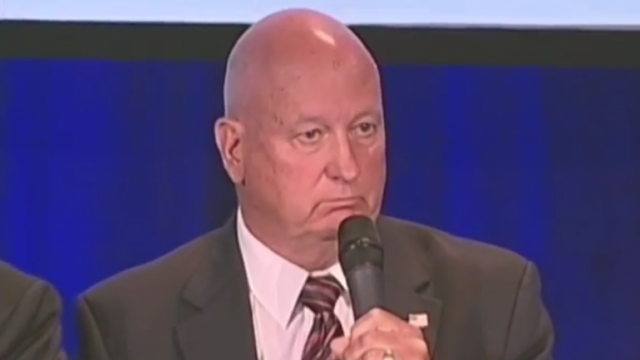Democrats Want To Hurt North Dakota: "Good For Us" They Say Of Stopping Tax Reforms

North Dakota Democrats have been marginalized in state government for decades now. They haven’t elected a Governor since 1988. They haven’t controlled the state House since 1983. They haven’t controlled the state Senate since 1994.
Heck, a Democrat hasn’t won a state office on the statewide ballot since 2008.
What’s it going to take for North Dakota voters to start casting their ballots differently? Probably a change in the state’s fortunes. It’s hard to get voters to change their voting habits when things are good.
As such, I think Democrats are secretly rooting for things to go badly for North Dakota.
Shortly after the election Democrat state party chair Bob Valeu’s social media accounts read like something out of the book of revelations. Case in point, this bit of butt-hurt from shortly after Democrats got yet another shellacking at the polls in November:
There will be hell to pay when the Bakken bust shoe drops!
— bob valeu (@bobvaleu) November 8, 2014
Why do I get the idea that Valeu is downright giddy about the day when North Dakota’s fortunes might change? You don’t often see political figures rooting for failure for the sake of partisan gain right out in the open.
One area where Democrats seem intent on wounding North Dakota is oil tax revenues. Republicans attempted reforms to the state’s byzantine taxes on oil production and extraction which would have lowered the top rate by a couple of percentage point in exchange for doing away with (among other exemptions) two oil price triggers. Those triggers, if hit, would cost billions in revenues and destablize the state’s budget.
Hitting the first of these triggers is a near certainty. The loss of hundreds of millions in revenues – hurting efforts to fund infrastructure improvements and tax relief – could be just days away.
Democrats attacked efforts to do away with these tax triggers during the 2014 campaign season. Shortly after the election in November Valeu was predicting on Facebook that those dastardly Republicans would try those reforms again.
Now Democrats are responding Republican criticism that they killed these reform efforts with a glib “good for us.” This is from their weekly legislative review, responding to state Senator Lonnie Laffen’s op/ed posted here on SAB earlier this week (emphasis mine).
So how do we keep North Dakota strong**** both during near-term dips in the price of oil and after the oil boom has subsided? You may be surprised to learn that the majority has vastly different ideas on this important issue than we do.
Take the idea (not ours) that we should have permanently reduced the oil extraction tax by 30% last session in exchange for removal of oil “triggers” which provide tax incentives to the oil industry during times of sustained low oil prices. That was the argument made by a Republican senator from Grand Forks this week, who also claimed that Dem-NPL legislators — and one Capitol Letters co-author in particular — “forced” the GOP majority to “abandon” efforts to cut the extraction tax last session. We will have a response published in your local newspaper shortly, but suffice it to say that permanently reducing the oil extraction tax to the tune of billions and billions of dollars in lost revenue over the decades in exchange for removal of the triggers — which may result in temporary loss of revenue during down times for the industry — was not a good deal. To the extent that we “forced” the GOP majority to abandon that flawed proposal, well, good for us.
Yes, good for Democrats for maintaining in our tax code these trigger landmines which, if hit, could throw the state budget into turmoil.
Of course, turmoil may be exactly what Democrats want. They’re actively promoting bad policy – there’s no planet on which tax code tied to oil prices is good policy – for seeming partisan advantage.
If they can create chaos, they can take advantage of that for electoral gains.
It’s a cynical and disgusting display of partisan politics.
“Good for us,” Democrats say of having blocked tax reforms which would have made the state’s revenue and budget much more stable. And that’s the point, isn’t it? Chaos and uncertainty are good for them.
Not, unfortunately, the state.




